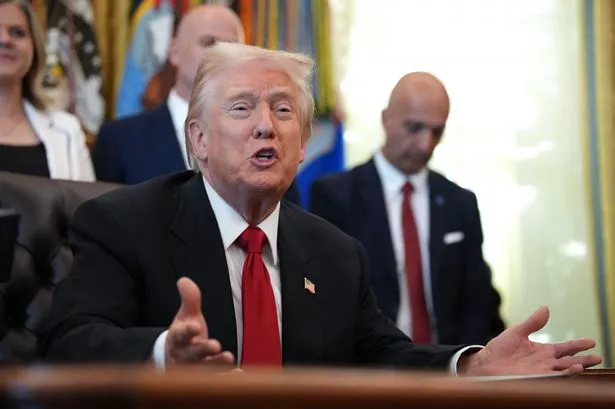UPDATE: President Donald Trump has just announced a plan to send Americans a check for $2,000, claiming it would be funded by revenues from tariffs. This proposal comes amid soaring disapproval ratings, recently reported at 63%, according to a CNN/SSRS poll conducted from October 27 to 30, 2023.
In a post on Truth Social, Trump stated, “A dividend of at least $2,000 a person (not including high-income people!) will be paid to everyone,” urging support for his tariff policies and asserting that “people who are against tariffs are FOOLS!” The announcement raises significant questions around feasibility and funding, as previous similar proposals have not materialized.
Trump’s administration has collected nearly $200 billion in customs duties, placing the effective tariff rate at almost 18%—the highest in nearly a century. However, experts warn that the cost of providing such checks could exceed the revenues generated from tariffs. Erica York, vice president of federal tax policy at the Tax Foundation, stated on X that if 150 million adults qualify for the checks, it would cost nearly $300 billion.
Despite these concerns, Trump maintains confidence in the U.S. economy, noting, “We are now the Richest, Most Respected Country In the World, With Almost No Inflation.” He emphasizes the record stock market performance and the growth in U.S. investments, asserting that the government is poised to begin paying down its $37 trillion debt.
For this plan to come to fruition, Trump would need approval from Congress. In an earlier attempt, Republican Senator Josh Hawley proposed a $600 check using tariff rebates, which Treasury Secretary Scott Bessent rejected, stating those funds would instead go towards reducing the federal deficit.
The urgency of this proposal resonates as the nation grapples with economic pressures and public sentiment. With Trump’s disapproval ratings at a high point, this bold move could be an attempt to rally support ahead of upcoming elections.
As the situation develops, many are keenly watching how Congress will respond. The implications of this proposal could significantly impact American households if it gains traction. Stay tuned for updates on this developing story.







